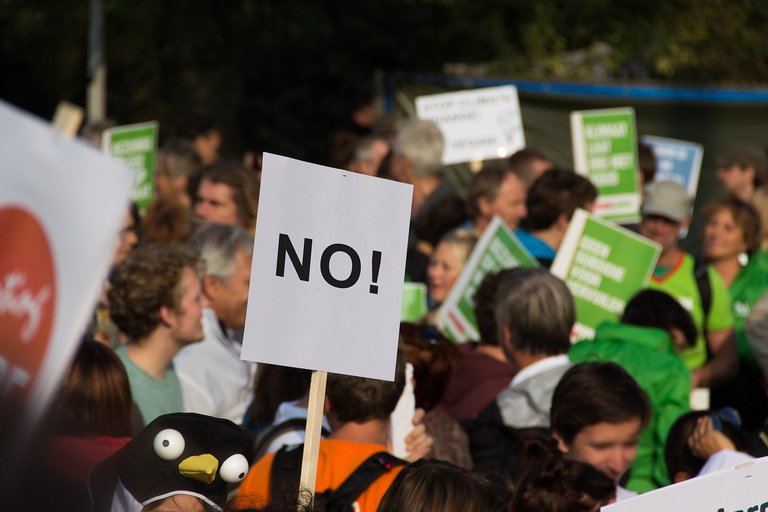A wake-up call
The small town of Savannah was known for its quaint charm and friendly residents. However, beneath its idyllic surface, a sense of discontent had been brewing among the people in the community. The latest project to instigate controversy was the proposed construction of a new town hall, which had been touted as a symbol of the town's development and growth.
Councilor Williams, a charismatic and high regard figure in the community, had been the driving force behind the project. He had convinced many of the people in the community that the new town hall would not only provide much-needed office space but also serve as a central part for community events and activities.
However, as the project moved on, whispers of discontent began to circulate. Some residents questioned the necessity of the project, citing the town's already substantial budget and the potential for cost overruns. Others expressed concerns about the design of the building, which seemed to prioritize beauty over functionality.
At the heart of the controversy was the suspicion that the project was a boondoggle, a wasteful and unnecessary expenditure of taxpayer dollars. Many believed that Councilor Williams had subsequent motives, possibly driven by personal gain or a desire for good reputation.
As tensions arose, a group of concerned citizens decided to take matters into their own hands. They organized town hall meetings, circulated petitions, and even started a social media campaign to raise awareness about the issue. The hashtag #NotMyTownHall began trending on Twitter, with many residents expressing their frustration and disappointment.
Councilor Williams, however, remained firm in his support for the project. He argued that the new town hall would be a estimable asset to the community, providing a modern and efficient workspace for town officials. He also claimed that the project would create job opportunities and stimulate local economic growth of the town.
Despite Williams assurances, the opposition continued to gain momentum. A local journalist, known for her investigative reporting, began to dig deeper into the project's finances. She discovered that the construction costs were significantly higher than initially estimated, and that several town officials had close ties to the construction company hired for the project.
The journalist's findings sparked outrage among the townspeople. Many required that Councilor Williams resign, citing his role in what they perceived to be a boondoggle of epic proportions. The town's mayor, caught in the middle, struggled to navigate the crisis.
As the controversy reached a boiling stage, a group of residents decided to stage a protest in front of the town hall. They carried signs that read "Stop the Boondoggle" and "Transparency Now." The protest drew attention from local media outlets, and soon the story was being broadcast across the region.

https://pixabay.com/photos/strike-protest-people-group-51212/
In the midst of the chaos, Councilor Williams remained defiant. He insisted that the project was necessary and that the townspeople would eventually see the benefits. However, his words fell on deaf ears. The damage had been done, and the townspeople had lost trust in their leadership.
In the end, the town council was forced to reconsider the project. After a series of heated debates and negotiations, they voted to scale back the project and put the funds to better use. The townspeople breathed a collective sigh of relief, knowing that their tax dollars would be spent more efficiently.
As the dust settled, Councilor Williams reputation was left in shattered. His once-strong support had dwindled, and many questioned his ability to lead. The boondoggle had become a cautionary tale, a reminder of the dangers of unchecked power and the importance of transparency in government.
The town of Savannah would never be the same. The controversy had brought the community to be United, but in a way that no one could have expected. The residents had come to realize that their voices mattered and that they would no longer stand idly by while their tax dollars were being squandered on boondoggles.
In the aftermath, the town council implemented new measures to ensure transparency and accountability. They established a citizen-led oversight committee to review major projects and provide regular updates to the public. The town's financial records were made available online, allowing citizens to track expenditures and identify potential issues.
The experience had been a hard lesson, but one that the town of Savannah would not soon forget. The boondoggle had taught them the importance of vigilance and the power of community activism. As they looked to the future, the residents knew that they would always stand ready to defend their interests and ensure that their tax dollars were spent wisely.
The story of the boondoggle would be told and retold for years to come, serving as a reminder of the importance of accountability and transparency in government. It would also serve as a testament to the power of community activism and the impact that ordinary citizens can have when they come together to demand change.
In the end, the town of Savannah emerged stronger and more resilient, with a renewed commitment to transparency and accountability. The boondoggle had been a wake-up call, but it had also brought the community together in a way that would have lasting benefits for years to come.